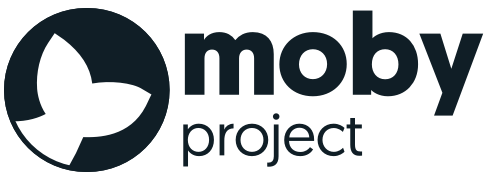These HostConfig properties were not validated until the OCI spec for the container
was created, which meant that `container run` and `docker create` would accept
invalid values, and the invalid value would not be detected until `start` was
called, returning a 500 "internal server error", as well as errors from containerd
("cleanup: failed to delete container from containerd: no such container") in the
daemon logs.
As a result, a faulty container was created, and the container state remained
in the `created` state.
This patch:
- Updates `oci.WithNamespaces()` to return the correct `errdefs.InvalidParameter`
- Updates `verifyPlatformContainerSettings()` to validate these settings, so that
an error is returned when _creating_ the container.
Before this patch:
docker run -dit --ipc=shared --name foo busybox
2a00d74e9fbb7960c4718def8f6c74fa8ee754030eeb93ee26a516e27d4d029f
docker: Error response from daemon: Invalid IPC mode: shared.
docker ps -a --filter name=foo
CONTAINER ID IMAGE COMMAND CREATED STATUS PORTS NAMES
2a00d74e9fbb busybox "sh" About a minute ago Created foo
After this patch:
docker run -dit --ipc=shared --name foo busybox
docker: Error response from daemon: invalid IPC mode: shared.
docker ps -a --filter name=foo
CONTAINER ID IMAGE COMMAND CREATED STATUS PORTS NAMES
An integration test was added to verify the new validation, which can be run with:
make BIND_DIR=. TEST_FILTER=TestCreateInvalidHostConfig DOCKER_GRAPHDRIVER=vfs test-integration
Signed-off-by: Sebastiaan van Stijn <github@gone.nl>
|
||
|---|---|---|
| .github | ||
| api | ||
| builder | ||
| cli | ||
| client | ||
| cmd | ||
| container | ||
| contrib | ||
| daemon | ||
| distribution | ||
| dockerversion | ||
| docs | ||
| errdefs | ||
| hack | ||
| image | ||
| integration | ||
| integration-cli | ||
| internal/test/suite | ||
| layer | ||
| libcontainerd | ||
| libnetwork | ||
| oci | ||
| opts | ||
| pkg | ||
| plugin | ||
| profiles | ||
| project | ||
| quota | ||
| reference | ||
| registry | ||
| reports | ||
| restartmanager | ||
| rootless | ||
| runconfig | ||
| testutil | ||
| vendor | ||
| volume | ||
| .DEREK.yml | ||
| .dockerignore | ||
| .gitattributes | ||
| .gitignore | ||
| .mailmap | ||
| AUTHORS | ||
| CHANGELOG.md | ||
| codecov.yml | ||
| CONTRIBUTING.md | ||
| docker-bake.hcl | ||
| Dockerfile | ||
| Dockerfile.e2e | ||
| Dockerfile.simple | ||
| Dockerfile.windows | ||
| Jenkinsfile | ||
| LICENSE | ||
| MAINTAINERS | ||
| Makefile | ||
| NOTICE | ||
| README.md | ||
| ROADMAP.md | ||
| SECURITY.md | ||
| TESTING.md | ||
| vendor.mod | ||
| vendor.sum | ||
| VENDORING.md | ||
The Moby Project
Moby is an open-source project created by Docker to enable and accelerate software containerization.
It provides a "Lego set" of toolkit components, the framework for assembling them into custom container-based systems, and a place for all container enthusiasts and professionals to experiment and exchange ideas. Components include container build tools, a container registry, orchestration tools, a runtime and more, and these can be used as building blocks in conjunction with other tools and projects.
Principles
Moby is an open project guided by strong principles, aiming to be modular, flexible and without too strong an opinion on user experience. It is open to the community to help set its direction.
- Modular: the project includes lots of components that have well-defined functions and APIs that work together.
- Batteries included but swappable: Moby includes enough components to build fully featured container system, but its modular architecture ensures that most of the components can be swapped by different implementations.
- Usable security: Moby provides secure defaults without compromising usability.
- Developer focused: The APIs are intended to be functional and useful to build powerful tools. They are not necessarily intended as end user tools but as components aimed at developers. Documentation and UX is aimed at developers not end users.
Audience
The Moby Project is intended for engineers, integrators and enthusiasts looking to modify, hack, fix, experiment, invent and build systems based on containers. It is not for people looking for a commercially supported system, but for people who want to work and learn with open source code.
Relationship with Docker
The components and tools in the Moby Project are initially the open source components that Docker and the community have built for the Docker Project. New projects can be added if they fit with the community goals. Docker is committed to using Moby as the upstream for the Docker Product. However, other projects are also encouraged to use Moby as an upstream, and to reuse the components in diverse ways, and all these uses will be treated in the same way. External maintainers and contributors are welcomed.
The Moby project is not intended as a location for support or feature requests for Docker products, but as a place for contributors to work on open source code, fix bugs, and make the code more useful. The releases are supported by the maintainers, community and users, on a best efforts basis only, and are not intended for customers who want enterprise or commercial support; Docker EE is the appropriate product for these use cases.
Legal
Brought to you courtesy of our legal counsel. For more context, please see the NOTICE document in this repo.
Use and transfer of Moby may be subject to certain restrictions by the United States and other governments.
It is your responsibility to ensure that your use and/or transfer does not violate applicable laws.
For more information, please see https://www.bis.doc.gov
Licensing
Moby is licensed under the Apache License, Version 2.0. See LICENSE for the full license text.
